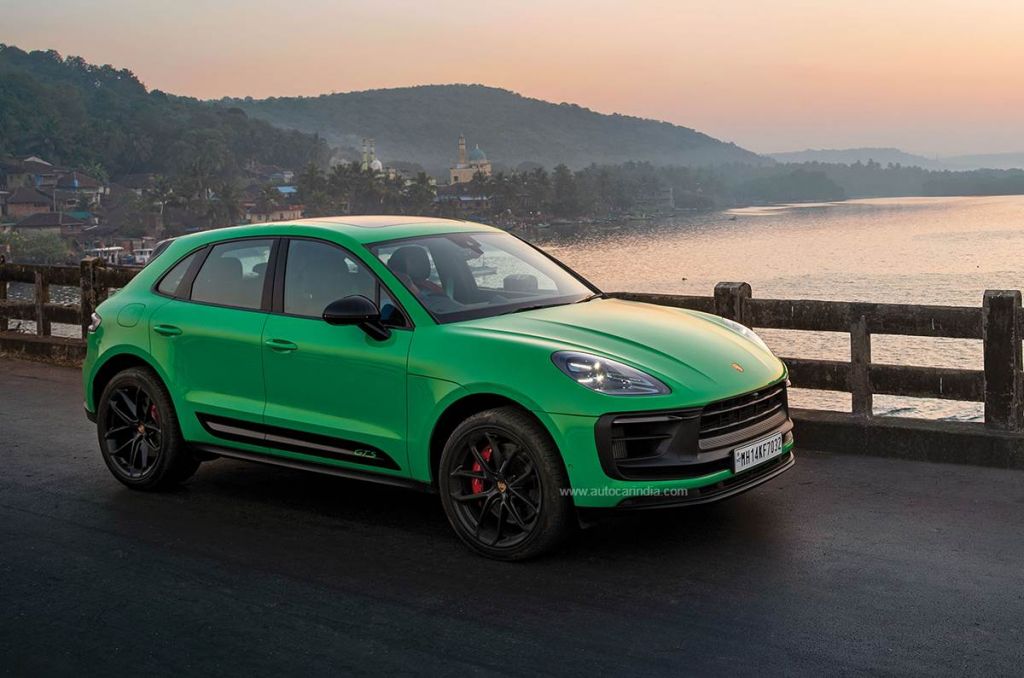
Porsche is considering reversing its decision to make the second-generation Macan SUV exclusively electric, as the German performance brand suffers through one of the most difficult periods in its 93-year history. The Macan EV was revealed in January last year as Porsche’s second EV after the Taycan, and the company’s plans for the smaller SUV were to go all-electric in 2025. In fact, the petrol Macan was removed from sale in the EU in April, but markets like the UK and India will have the ICE version for a little longer.
- Porsche global sales declined 7 percent; Taycan sales dropped 50 percent
- Porsche ICE models will remain critical to the brand for longer
- New Macan petrol could share PPC platform with third-gen Audi Q5
Now, Porsche insiders have told our sister publication Autocar UK that bosses are relooking at the decision to move the company’s best-seller, the Macan, away from ICE power, following a 7 percent decline in Porsche sales globally. The drop has been mostly due to sales of the Taycan falling 50 percent – making it Porsche’s worst-performing model in 2024 – amid a wider stalling of interest in EVs. As such, Porsche has significantly scaled back Taycan production. Reports even suggest that it could be withdrawn from the main plant in Stuttgart, putting thousands of jobs at risk.
Deputy chairman and chief financial officer Lutz Meschke has now confirmed that ICE models will remain a critical part of Porsche’s line-up for longer than previously anticipated. Initially, Porsche aimed for EVs to account for 80 percent of its global sales by 2030, but this target has since been reframed to “depend on customer demand”.

“We are exploring the possibility of equipping some of the originally planned electric models with hybrid drives or internal combustion engines in the future,” said Meschke. “Conceptual decisions are being made, but what is clear is that we are committed to the combustion engine for much longer.”
While the primary focus for extending ICE production has been the Cayenne, sources within Porsche suggest that a new ICE Macan is being reconsidered as part of a “range of product scenarios”. “The reception to the new Macan [Electric] has been positive, but we are yet to see its long-term performance, given uncertain market conditions,” said a senior Porsche insider. “The downturn in Taycan sales highlights new market dynamics. We cannot rely solely on traditional assumptions about consumer behaviour.”
The ICE Macan has been an important product for Porsche, accounting for some 5 lakh sales over its 10-year lifetime. It was also successful in China, where Porsche’s sales in 2024 dropped by almost 30 percent. In India, the Macan contributed 259 units to the brand’s 2024 total of 1,006 units. Despite the uncertain market conditions globally, Porsche’s profit margin remains at a high level, hitting 14.1 percent during the first three quarters of 2024, with an operating profit of about Rs 35,545 crore from revenues of about Rs 2.5 lakh crore.
If Porsche does decide to introduce a new petrol-powered Macan, it is likely that it’ll share its PPC (Premium Platform Combustion) architecture with the India-bound third-gen Audi Q5. The decision to re-evaluate its EV future lines up with market trends in China, which is the world’s largest car market and EV market. Many manufacturers there are launching plug-in hybrid or range-extender models along with EVs to cater to a wider audience.

Macan EV (pictured) and ICE version will likely be sold side by side for longer.
Porsche’s electrification plans continue to face significant challenges. Along with Taycan production being heavily cut, the electric 718 Boxster and Cayman sports cars, initially scheduled for 2025, face delays due to supply-chain issues with battery supplier Northvolt, which recently filed for bankruptcy.
In India, Porsche's smaller e-SUV is on sale in Macan Electric (Rs 1.22 crore) Macan 4S Electric (Rs 1.39 crore) and Turbo Electric (Rs 1.69 crore) variants, while the Macan petrol comes in standard (Rs 96.05 lakh), S (Rs 1.45 crore) and GTS (Rs 1.53 crore) forms.
All prices, ex-showroom, India
Also see:
Porsche Macan EV review: The best handling electric SUV?
Porsche Macan EV, Taycan facelift walkaround video: Auto Expo 2025